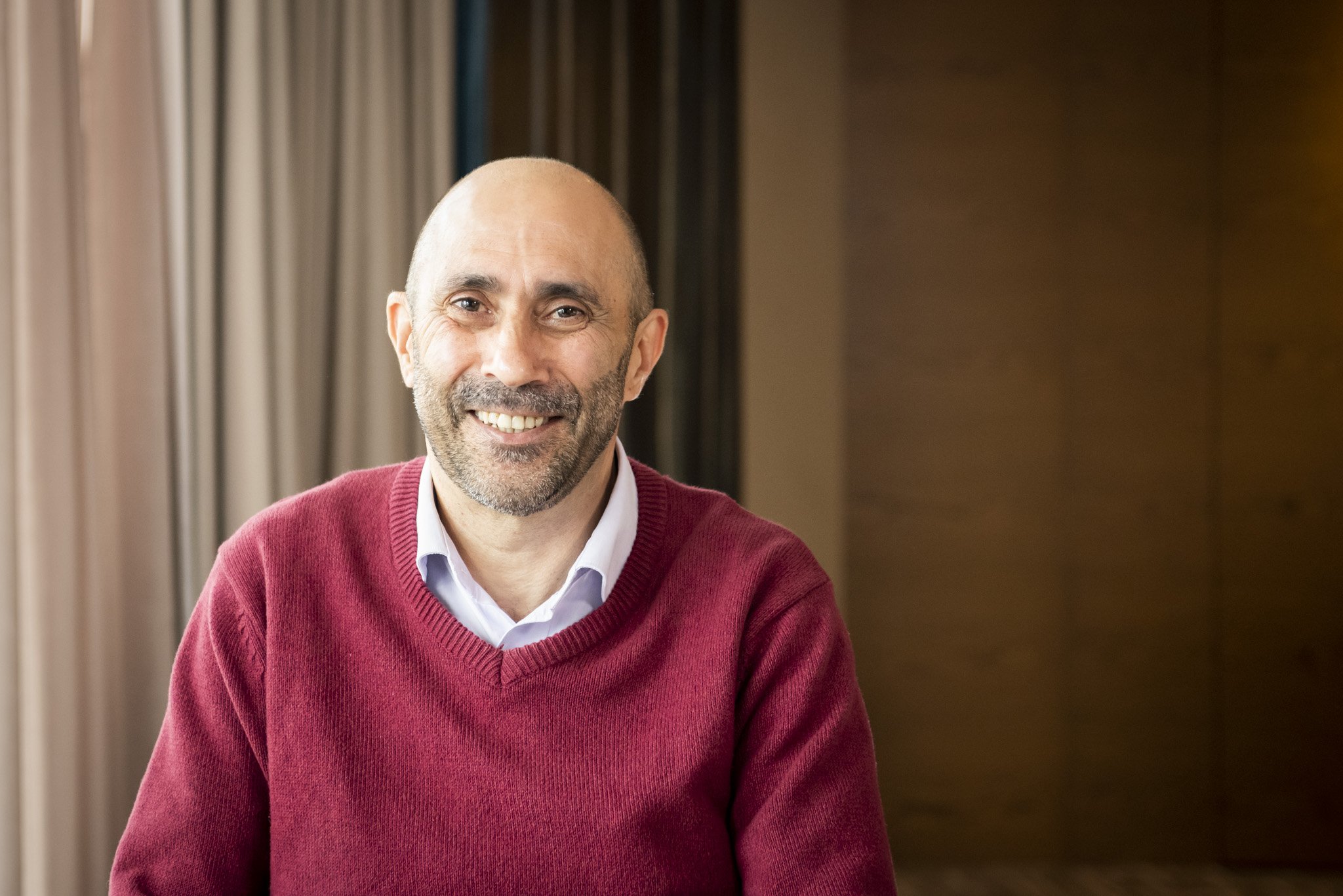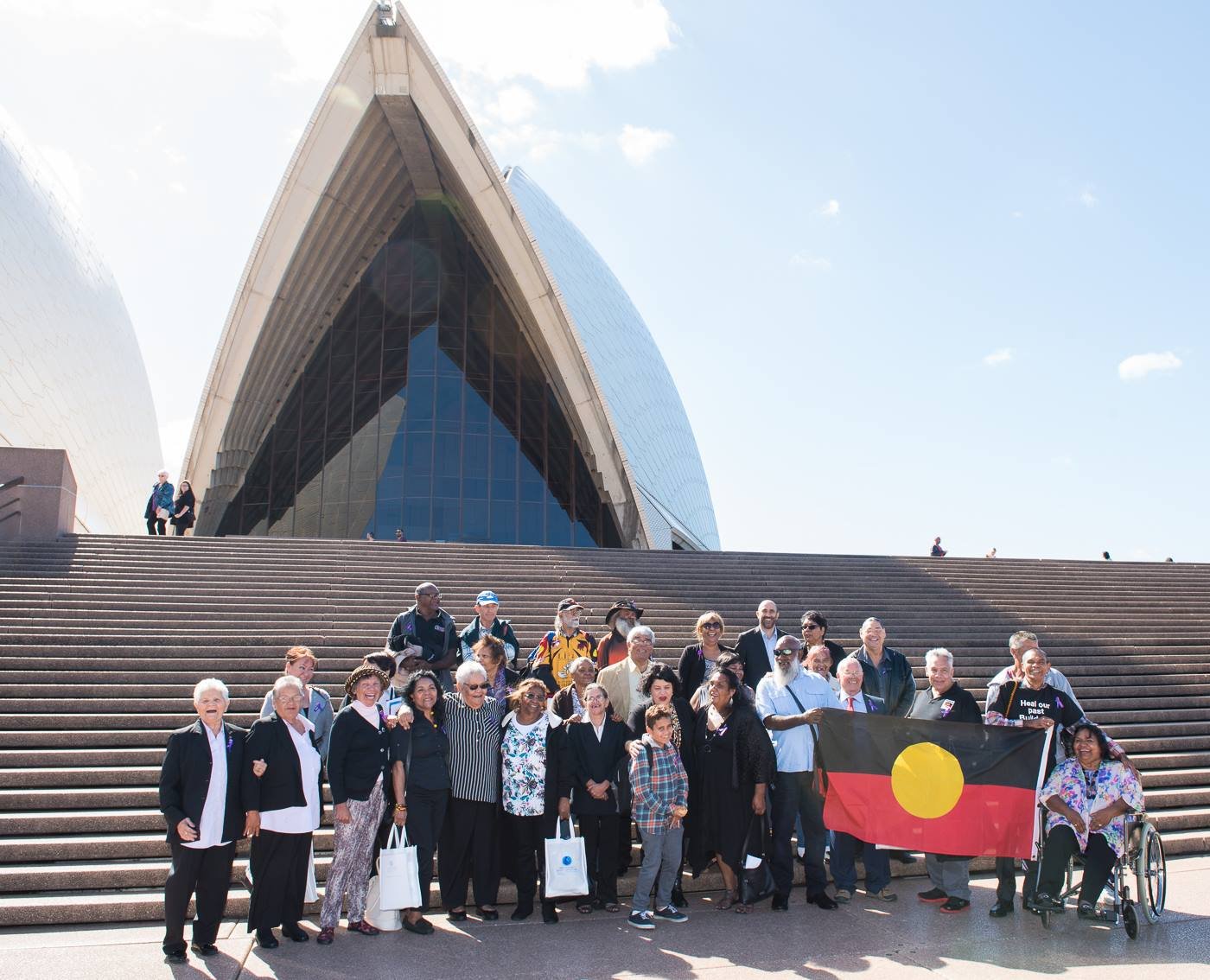"To the mothers and the fathers, the brothers and sisters, we say sorry.”
Thirteen years ago this February, Kevin Rudd uttered these words in his first address as the newly elected Australian Prime Minister. Speaking to parliament, Rudd apologized “for the breaking up of families and communities” that resulted from the forced removal of 100,000 Indigenous Australian children between 1910 and 1970.
Now known as the Stolen Generations, these children were taken from their families under a policy of assimilation. The approach was based on the racist assumption that Aboriginal and Torres Strait Islander children's lives would be improved if they were made to live in white society. Eventually, it was thought the nation's Aboriginal population would die out.
Ian Hamm was a newborn when he was taken from his family.
Global Citizen spoke with Hamm, now the chair of the Healing Foundation’s Stolen Generations Reference Group, about how generations of children lost connection to family, land, culture and language and why acknowledging the truth is the first step to healing.
Global Citizen: Tell me about your experience being forcibly removed from your family as a child.
Ian Hamm: I was separated from my family when I was three weeks old and was adopted at three months of age. That was September 1964. I grew up in a small country town called Yarrawonga, which is on the Victorian, New South Wales border. I was one of three Aboriginal kids in Yarrawonga: the other two being two girls that my parents later adopted. I was the only Aboriginal boy in town, so I was the entire male Aboriginal population of Yarrawonga. You’re really aware that you're not like everyone else.
How was your connection to culture impacted by being forcibly removed from your family?
Your understanding of what it is to be Aboriginal is very limited because your only reference point is through television and newspapers, and this was the early ‘70s when coverage of Aboriginal stuff wasn't great at all. So you really have no positive reference point. Growing up, I always had the question of what does it mean to be Aboriginal? Where am I from? Where do I fit in, and why am I here?

Were your questions ever answered?
When Mum and Dad picked me up from the Salvation Army adoption home, the woman working there told them a couple of things about me. So I always knew my birth name was Andrew James. She also said, “Look, I’m not supposed to tell you this, but he's also got a little bit of Indian blood.”
When I moved to Bendigo to go to college, I mentioned my original surname was James to somebody from Aboriginal Education, and he said I think I know who you are. Six months later, he gets back to me and tells me to visit the Aboriginal Childcare Agency. Once there, a woman sat down with me and took me through my story. My great-grandfather was an Indian person, and he'd married an Aboriginal woman. The Jameses are a big family in Shepparton. All of this stuff of where am I from, am I from Queensland? Am I from the Northern Territory? It turns out I'm from 50 kilometres from where I grew up.
We spoke for 40 minutes. She said, “Ian, nobody knows who your father is and your mother is dead.” My mother died in 1966. She would have been 26 years old when she died, and I would have been two. She had four other children as well — my older brothers and sisters. I was the only one who was separated.
Today is the 13th Anniversary of the National Apology to the Stolen Generations. We’re a long way from the Stolen Generations, but there’s still further to go. Read my op ed that first appeared in @australian here - https://t.co/GEPMGUflXU
— Ken Wyatt (@KenWyattMP) February 12, 2021
What did having these questions answered mean to you?
When I heard that, it kind of explained something for me. I just really loved the bush and going to the Murray River growing up. I felt like I belonged there, but I didn't know why. It turns out, Yarrawonga is in the lands of the Yorta Yorta, and I’m Yorta Yorta. I knew I was in my lands before I knew they were my lands.
Over the years, people would say to me that I was a lot like my mother. But I never knew what that meant, because I never met her. That's probably the most frustrating of all. My mother wouldn't put my father on my birth certificate. She was married to somebody who left, so my four siblings, my half-siblings, all have the same father. I've got a different one. So I still ask where I come from a little bit. It's not a conscious thing, but that fear of rejection that you're not wanted is always there.

What does the National Apology to the Stolen Generations mean to you now, over a decade later?
Up to that point, there was still this divide and question about whether the Stolen Generations had happened. When Kevin Rudd wrote the Apology, it just killed all the ridiculousness. When the first thing the new Prime Minister says is “sorry” — that’s real. It just changed everything. I get teary talking about it, that’s the significance of it for me. The country stopped arguing with me about my existence. The effects of intergenerational trauma, the impact of being taken, and how it affects our children and grandchildren were now recognised. I felt like I didn't have to justify who I was anymore because now the country recognised who I was and why I am the way I am.
Rudd promised to work to address Indigenous inequalities during the speech. Has this been fulfilled?
I don't know if it's being fulfilled, but you’ve got to be optimistic. If you weren't, it would crush you. In Victoria, we are so profoundly further down the track than I think anyone ever would have envisioned a generation ago. I’m talking about changing words in the National Anthem, about constitutional recognition and voices to parliament. The simple fact that we’re even talking about that is huge. In Victoria, we're actually doing a treaty for God's sake. Yes, we are getting better and getting closer to equity, but we’re still a long way from it.
What more would you like to see governments do to help support healing?
I want to see the government work with the community, not dream up things to do to the community. That's the biggest thing for the Federal Government. Their role isn't to do things to the Aboriginal community; it's to do things with and led by the Aboriginal community. They need to shift to how we do things in Victoria. That's not to say we are perfect in Victoria, but we are a fair way down the track.
What can non-Indigenous people do for Aboriginal Australians?
Do not think of us as a series of disconnected, singular problems that have to be fixed. Do not think of us as a series of deficits. Think of us as a people of unrealised potential and unleashed possibility. Don’t think of us as a people who take, but rather as a people who can give so much.
This interview has been edited and condensed.